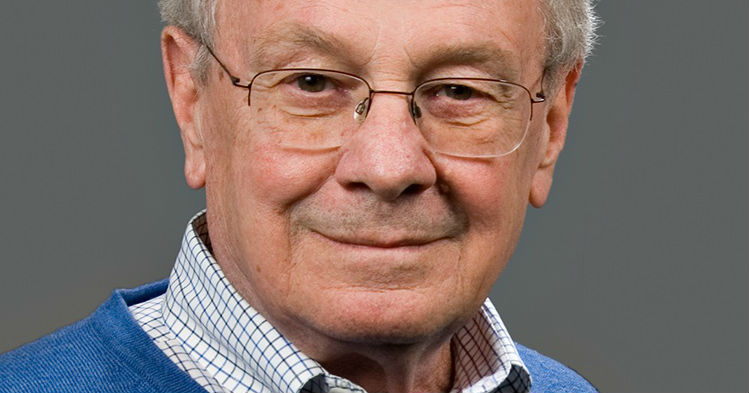
Daniel Callahan, bioethics pioneer, dies at 88
Bioethics pioneer Daniel Callahan, co-founder of The Hastings Center, has died aged 88.
Bioethics pioneer Daniel Callahan — co-founder of The Hastings Center — has died aged 88.
Callahan was a prolific author and commentator who wrote or edited 47 books on topics ranging from abortion and euthanasia to healthcare resource allocation and climate change.
Some of his better known works include Abortion: Law, Choice and Morality (1970) — an early study of abortion that argues for a compromise between the pro-life and pro-choice positions on pregnacy termination — and Setting Limits: Medical Goals in an Ageing Society (1987) — and essay arguing for radical limits on healthcare expenditure on older Americans.
Callahan was a Catholic in early life, and began his intellectual career as editor of Commonweal magazine, a liberal Catholic periodical. He split with the Catholic Church over abortion in the late 1960s, though his thinking continued to be influenced by Catholic theology, and, in particular, Catholic teaching on community and the common good.
Callahan started The Hastings Centre in the late 1960s. Under his guidance, the center grew to be one of the leading research institutes for bioethics scholarship in the United States, boasting among its scholarly alumni bioethicists such as NYU’s Arthur Caplan and Georgetown’s Robert Veatch.
Callahan’s bioethical scholarship was both original and countercultural. He was wary of the liberal preoccupations of contemporary bioethics scholarship, arguing that scholars had lost sight of important questions about what contributes to human flourishing and the common good. In a 2016 interview with BioEdge, Callahan expressed deep reservations about the principlist ethical framework that has informed much of bioethical debate to date:
“I was never satisfied with principlism, put off by the dominance of autonomy, representing a kind of cultural captivity, and altogether too narrow to deal with the social dimensions of human life. I take the good of society to be as important as the good of the individual”.
For Callahan, bioethics should not only consider the rights of individuals but also the broader cultural implications of biomedical policy.
Callahan was an opponent of euthanasia, arguing the case for legalisation rested on a distorted conception of the right to self-determination and failed to recognise the broader societal implications of state-sanctioned medical killing.
He was also wary of embryonic stem-cell research. He testified before President George W. Bush’s Council of Bioethics in 2003, criticising the claim that we have a moral imperative to pursue stem cell research and argued instead that we should rethink our decidedly negative attitudes towards death and ageing — two realities of the human condition that stem-cell research was intended to “combat”.
Mildred Solomon, President of the Hastings Center, described Callahan as “an inspiration”, and someone who provided a model of what it means to engage in purposeful but respectful bioethical dialogue. Bioethicist Robert Veatch described him as a thinker who made “a remarkable contribution to the common good”.
Daniel Callahan, pioneer of bioethics, dies at 88
Xavier Symons
Creative commons
https://www.bioedge.org/images/2008images/Daniel_Callahan_fbook.jpg
abortion
communitarianism
daniel callahan
euthanasia
stem-cell research
